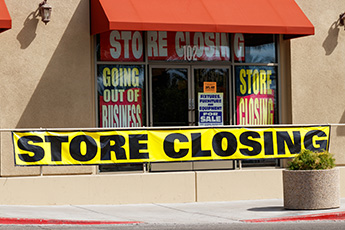In 1975, Kodak invented the digital camera. The company never did anything with it, deciding that its film business base was too solid to worry about this innovation. Fast forward a few decades, and digital cameras went on to nearly put Kodak out of business.In some ways, traditional banking today is like the Kodak of yesterday, facing a digital challenge that some community financial institutions (CFIs) may not be taking seriously enough. The rise of neobanks and non-banks in lending to small and medium businesses (SMBs) is a challenge for CFIs, and not just in the competition for new customers. Existing SMB customers are also being courted and lured away. Too often, institutions don’t realize those customers are drifting away until it is too late.The Rise of Neobanks
The irony in this rising challenge is that CFIs start with a distinct advantage. They hold top honors for customer satisfaction among small businesses. According to the 2022 Small Business Credit Survey, 76% said they were satisfied with their overall banking experience at CFIs. By comparison, 62% were satisfied with large banks, and just 34% with online lenders.Lender preference, however, is starting to shift. Despite satisfaction ratings, the survey noted that SMB financing applications to small financial institutions dropped from 43% in 2020 down to 36% in 2021, while large banks claimed the top spot for application submissions. Online lending applications rose 3%.Neobanks now make about 23% of small business loans, and their presence is growing. Alternative finance companies are typically digital-only operations, and they are attractive because their models ostensibly make online loan application and approval easier. When Fintech Labs did a ranking of top digital small business lenders, they counted 36 companies.Preventing Loss of CustomersHow does a CFI know if one or more of these alternate lenders has attracted the attention of one of their own customers? Short of having the customer disclose that information, it is difficult to know. One way you can monitor for warning signs is to watch for a decline in account activity. An SMB customer with an active account that suddenly gets much less active could be a sign that the customer is using a different bank, possibly a non-bank or neobank. A CFI that monitors data for that type of shift in activity can then check in with the customer to see if there are issues and to improve that relationship.To help mitigate, here are three approaches you can take to prevent customer disenchantment:
The irony in this rising challenge is that CFIs start with a distinct advantage. They hold top honors for customer satisfaction among small businesses. According to the 2022 Small Business Credit Survey, 76% said they were satisfied with their overall banking experience at CFIs. By comparison, 62% were satisfied with large banks, and just 34% with online lenders.Lender preference, however, is starting to shift. Despite satisfaction ratings, the survey noted that SMB financing applications to small financial institutions dropped from 43% in 2020 down to 36% in 2021, while large banks claimed the top spot for application submissions. Online lending applications rose 3%.Neobanks now make about 23% of small business loans, and their presence is growing. Alternative finance companies are typically digital-only operations, and they are attractive because their models ostensibly make online loan application and approval easier. When Fintech Labs did a ranking of top digital small business lenders, they counted 36 companies.Preventing Loss of CustomersHow does a CFI know if one or more of these alternate lenders has attracted the attention of one of their own customers? Short of having the customer disclose that information, it is difficult to know. One way you can monitor for warning signs is to watch for a decline in account activity. An SMB customer with an active account that suddenly gets much less active could be a sign that the customer is using a different bank, possibly a non-bank or neobank. A CFI that monitors data for that type of shift in activity can then check in with the customer to see if there are issues and to improve that relationship.To help mitigate, here are three approaches you can take to prevent customer disenchantment:
- Proactively engage with small business customers. Make sure their needs are being met. It can be helpful to ask if there are lending needs and how the CFI can help the business further its goals.
- Assess the competition. Monitor for any marketing by alternative financial companies toward small businesses within a CFI’s footprint and be prepared to step up marketing efforts in response.
- Take advantage of vendors and partnerships. Making use of these relationships can help CFIs evaluate and improve relationships, as well as improve digital business lending. Customer profitability tools, like PCBB’s Profitability FIT, can help CFIs better understand the value of each relationship.
Neobanks and non-banks are hot on the trail of CFIs in the competition for small business lending. CFIs that don’t take the competition seriously enough and take proactive steps may find out too late that some of their customers have switched sides.




